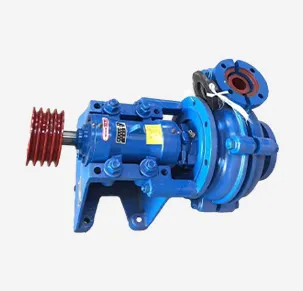English
- Afrikaans
- Albanian
- Amharic
- Arabic
- Armenian
- Azerbaijani
- Basque
- Belarusian
- Bengali
- Bosnian
- Bulgarian
- Catalan
- Cebuano
- Corsican
- Croatian
- Czech
- Danish
- Dutch
- English
- Esperanto
- Estonian
- Finnish
- French
- Frisian
- Galician
- Georgian
- German
- Greek
- Gujarati
- Haitian Creole
- hausa
- hawaiian
- Hebrew
- Hindi
- Miao
- Hungarian
- Icelandic
- igbo
- Indonesian
- irish
- Italian
- Japanese
- Javanese
- Kannada
- kazakh
- Khmer
- Rwandese
- Korean
- Kurdish
- Kyrgyz
- Lao
- Latin
- Latvian
- Lithuanian
- Luxembourgish
- Macedonian
- Malgashi
- Malay
- Malayalam
- Maltese
- Maori
- Marathi
- Mongolian
- Myanmar
- Nepali
- Norwegian
- Norwegian
- Occitan
- Pashto
- Persian
- Polish
- Portuguese
- Punjabi
- Romanian
- Russian
- Samoan
- Scottish Gaelic
- Serbian
- Sesotho
- Shona
- Sindhi
- Sinhala
- Slovak
- Slovenian
- Somali
- Spanish
- Sundanese
- Swahili
- Swedish
- Tagalog
- Tajik
- Tamil
- Tatar
- Telugu
- Thai
- Turkish
- Turkmen
- Ukrainian
- Urdu
- Uighur
- Uzbek
- Vietnamese
- Welsh
- Bantu
- Yiddish
- Yoruba
- Zulu
Telephone: +86 13120555503
Email: frank@cypump.com
Oct . 11, 2024 22:11 Back to list
Efficient Solutions for Agricultural Tractor Slurry Pumping Systems and Technologies
Understanding Tractor Slurry Pumps Essential Equipment for Agriculture
Tractor slurry pumps play a crucial role in modern agriculture, particularly in managing waste from livestock farms. As a vital piece of equipment, these pumps contribute to efficient waste disposal and nutrient management, helping farmers maintain sustainable practices while improving the productivity of their land. In this article, we will explore the functionality, benefits, and considerations surrounding tractor slurry pumps.
What are Tractor Slurry Pumps?
Tractor slurry pumps are specialized pumps designed to transfer liquid manure, also known as slurry, from storage tanks or pits to field application systems. These pumps are generally towed behind a tractor and are powered by the tractor’s power take-off (PTO) shaft, which allows them to operate efficiently without needing an independent power source.
The pumps are engineered to handle thick, viscous materials found in slurry, which can consist of manure mixed with water, bedding, and other organic matter. This makes them robust in design, often made from durable materials that can withstand the corrosive nature of animal waste.
Functionality and Types of Slurry Pumps
Slurry pumps can vary in design, but most fall into two main categories centrifugal pumps and positive displacement pumps.
1. Centrifugal Pumps These are the most commonly used type for slurry application. They utilize a rotating impeller to create a flow of liquid, which is then expelled through a discharge pipe. They work best for low-viscosity slurries and are great for covering large areas quickly.
2. Positive Displacement Pumps These pumps are ideal for handling thicker slurries and operate by trapping a fixed amount of slurry and forcing it through the discharge pipe. They provide a steady flow, making them suitable for more precise applications.
Choosing the right pump type depends on the viscosity of the slurry, the distance it needs to travel, and the specific application method being used.
Benefits of Using Tractor Slurry Pumps
The advantages of using tractor slurry pumps are numerous
tractor slurry pump

- Efficient Waste Management These pumps help farmers efficiently manage livestock waste, reducing environmental impact by preventing runoff that can contaminate water sources. - Nutrient Recycling Applying slurry back to fields as fertilizer takes advantage of the nutrients present in the waste. This not only enhances soil health but also reduces the need for chemical fertilizers, promoting sustainable agricultural practices.
- Time and Labor Savings With the mechanical power provided by tractors, farmers can move large quantities of slurry in a fraction of the time it would take using manual methods
.- Versatility Many slurry pumps can adapt to various tasks, including irrigation, where slurry can be applied as a nutrient-rich liquid fertilizer.
Considerations When Choosing a Slurry Pump
When selecting a slurry pump, farmers should consider several factors
- Capacity and Size The required capacity will depend on the scale of the farm and the volume of slurry produced. Ensure that the pump can handle the anticipated workload.
- Terrain and Distance If the fields are far from the storage facilities, consider the pump's efficiency over long distances and whether it can handle variations in terrain.
- Maintenance Requirements Regular maintenance is crucial for keeping the pump in good working condition. Choose a model that offers ease of access for repairs and maintenance tasks.
- Compatibility Ensure that the pump is compatible with the tractor and other equipment on the farm to avoid any operational issues.
Conclusion
In summary, tractor slurry pumps are an indispensable tool in modern agricultural practices, enabling effective slurry management while promoting sustainable farming. By choosing the right pump and maintaining it regularly, farmers can enhance their operational efficiency and contribute to environmental preservation. As agriculture continues to evolve, the role of technology and equipment like slurry pumps will be crucial in meeting the challenges of waste management and soil fertility.
-
Horizontal Split Case Pump with GPT-4 Turbo | High Efficiency
NewsAug.01,2025
-
ISG Series Pipeline Pump - Chi Yuan Pumps | High Efficiency, Durable Design
NewsAug.01,2025
-
Advanced Flue Gas Desulfurization Pump with GPT-4 Turbo | Durable & Efficient
NewsJul.31,2025
-
ISG Series Vertical Pipeline Pump - Chi Yuan Pumps | Advanced Hydraulic Design&Durable Construction
NewsJul.31,2025
-
ISG Series Vertical Pipeline Pump - Chi Yuan Pumps | Energy Efficient & Low Noise
NewsJul.31,2025
-
pipeline pump - Chi Yuan Pumps Co., LTD.|High Efficiency&Low Noise
NewsJul.31,2025










